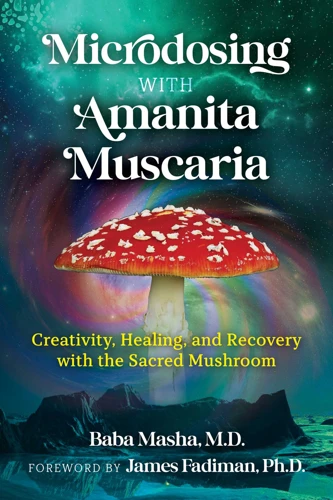Our modern society and fast-paced lifestyle often leave little room for mental clarity and self-reflection. This can lead to an increase in mental health issues such as depression, anxiety, and PTSD. While traditional medication and therapy have been widely used, many individuals are turning to alternative methods such as microdosing with plant medicines to treat their mental health issues. Microdosing, the process of taking small doses of a substance, has gained attention in recent years due to its potential benefits for mental health. In this article, we’ll explore the benefits of microdosing with plant medicines for mental health, as well as the potential risks and side effects. We’ll also provide guidelines for practicing safe and effective microdosing.
What is Microdosing?
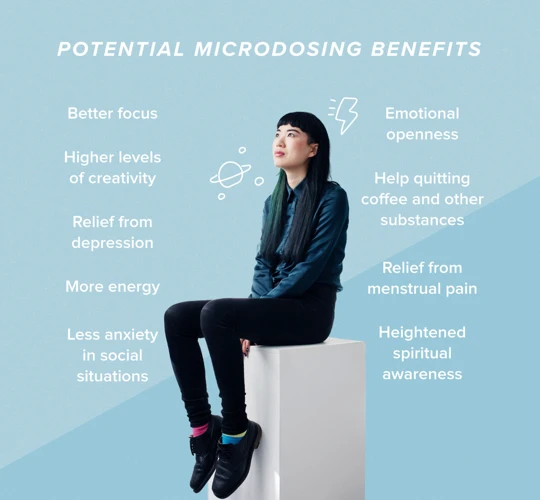
Have you ever heard of taking a tiny amount of a substance for benefits such as increasing creativity, productivity, and mental clarity without the psychedelic experience? This is exactly what microdosing is all about. Microdosing with various plant medicines has become increasingly popular among people who seek to explore the potential benefits of these substances while minimizing the risk of any negative side effects. In this section, we will delve into the concept of microdosing, how it works, and explore the various benefits it offers.
How Microdosing Works
Microdosing is the practice of consuming sub-perceptual doses of a substance, typically a psychedelic or plant medicine. The goal of microdosing is not to experience the intense and often disorienting effects of a full dose, but rather to enjoy the subtle therapeutic benefits of the substance.
When a full dose of a psychedelic substance is consumed, it typically produces profound changes in mood, perception, and thought. However, many of these changes occur because the substance interacts with the serotonin receptors in the brain. Microdosing works by a similar mechanism, but because the doses are so small, the effects are much more subtle.
Microdosing can have a wide range of effects on the mind and body. Some people report feeling more energized, creative, and focused. Others report feeling more empathetic and connected to the people around them. Additionally, many people report experiencing a heightened sense of well-being and a reduction in symptoms of anxiety and depression.
It is important to note that the mechanisms by which microdosing produces these effects are not yet fully understood. Some researchers believe that microdosing may help to rebalance neurotransmitters in the brain, while others speculate that it may stimulate the growth of new neural connections.
Regardless of the mechanisms involved, many people find that microdosing provides a gentle and effective way to support mental well-being and enhance their overall quality of life. However, it is important to approach microdosing with caution and to follow the proper guidelines to minimize the risk of negative side effects.
Benefits of Microdosing
Microdosing with plant medicines has become increasingly popular among people looking to improve their mental and emotional well-being. Here are some notable benefits of microdosing:
- Increased Creativity: Microdosing has been known to stimulate creativity and inspire new ways of thinking. It can help overcome creative blocks and tap into one’s creative potential.
- Improved Focus: Microdosing can increase mental focus and concentration, making it easier to complete tasks and stay productive throughout the day.
- Elevated Mood: Some people report feeling an overall sense of happiness, contentment, and well-being after microdosing. It can also help alleviate symptoms of anxiety and depression.
- Enhanced Spiritual Awareness: Microdosing can help people develop a greater sense of connectedness with nature and the universe as a whole. It can provide a greater understanding and appreciation for the beauty of life.
- Reduced Stress: Microdosing may help people feel more relaxed and less stressed. It can also help people cope with stressful situations and reduce the physical and emotional effects of stress.
- Improved Relationships: Microdosing can help people connect more deeply with others and create stronger bonds. It can increase empathy and understanding, leading to better communication and relationships.
- Increased Energy: Microdosing may provide a boost of energy and motivation, making it easier to engage in physical activity and stay active throughout the day.
These benefits can vary from person to person, and it is important to remember that microdosing is not a one-size-fits-all solution. It is crucial to do proper research and consult a healthcare professional before beginning a microdosing regimen, especially for those with preexisting health conditions or taking medication.
Plant Medicines for Microdosing
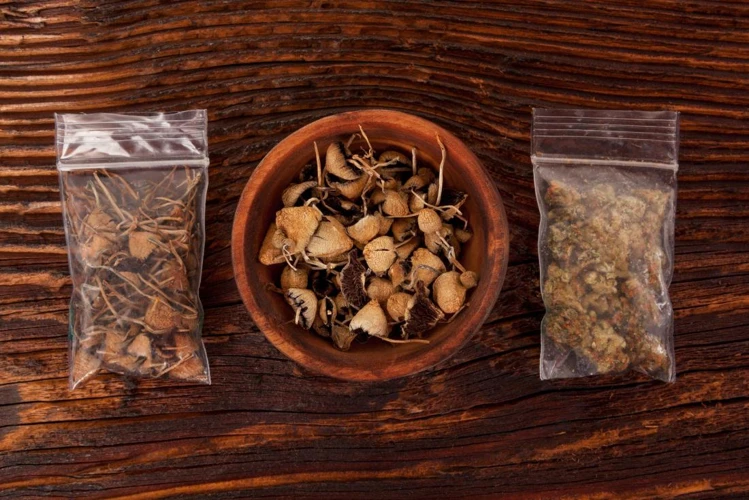
When it comes to microdosing, many people turn to plant medicines for their natural and potentially therapeutic benefits. These substances, often classified as either psychedelic or non-psychedelic, are believed to provide a range of effects that can positively impact mental health. However, before exploring the specific benefits and risks of microdosing with plant medicines, it’s important to understand the nature of these substances and how they work.
Psychedelic Substances and Their Effects
Psychedelic substances are a class of plant medicines that can have profound effects on the mind and consciousness. Here are some of the most commonly used psychedelic substances and their effects:
- Psilocybin mushrooms: These mushrooms contain psilocybin, a psychedelic compound that can induce altered states of consciousness, including hallucinations, altered thinking, and changes in mood and perception.
- LSD: Also known as acid, LSD is a potent psychedelic that can cause intense visual and auditory hallucinations, as well as changes in thinking and mood.
- DMT: This powerful psychedelic compound is found in a number of plants and can induce a short but intense psychedelic experience characterized by visual and auditory hallucinations, as well as changes in thinking and perception.
- Ayahuasca: This plant-based brew contains DMT and is traditionally used as a ceremonial medicine in South America. It can induce intense visual and auditory hallucinations, as well as emotional purging and catharsis.
- Mescaline: Found in the peyote cactus, mescaline can induce altered states of consciousness, including visual and auditory hallucinations, changes in thinking and mood, and altered perception of time and space.
It’s important to note that the effects of psychedelic substances can vary widely depending on the individual, the dose, and the setting in which they are used. While these substances can be powerful tools for personal growth and healing, they must be used responsibly and with caution.
Non-Psychedelic Substances and Their Effects
Non-Psychedelic Substances, also known as Adaptogens, are plants that support the body’s ability to cope with physical, emotional, and environmental stressors. They help to regulate the body’s stress response and promote balance in the body systems. Here are some commonly used non-psychedelic substances for microdosing, along with their effects:
| Substance | Effects |
|---|---|
| Ashwagandha | Reduces cortisol levels, improves cognitive function, and reduces anxiety and stress |
| Rhodiola Rosea | Improves alertness, attention, and memory, and reduces anxiety and depression |
| Ginseng | Enhances cognitive function, improves mood and energy levels, and reduces stress and fatigue |
| Maca | Increases energy and stamina, balances hormones, and improves mood and memory |
| Lion’s Mane Mushroom | Improves cognitive function, memory, and focus, and reduces anxiety and depression |
It is important to note that while these substances are generally considered safe for microdosing, it is still recommended to consult with a healthcare professional before beginning any new supplement regimen. It is also important to follow proper dosing guidelines and not exceed recommended dosages, as this can lead to potential side effects. Additionally, it is important to source these substances from reputable suppliers to ensure purity and quality.
Microdosing and Mental Health
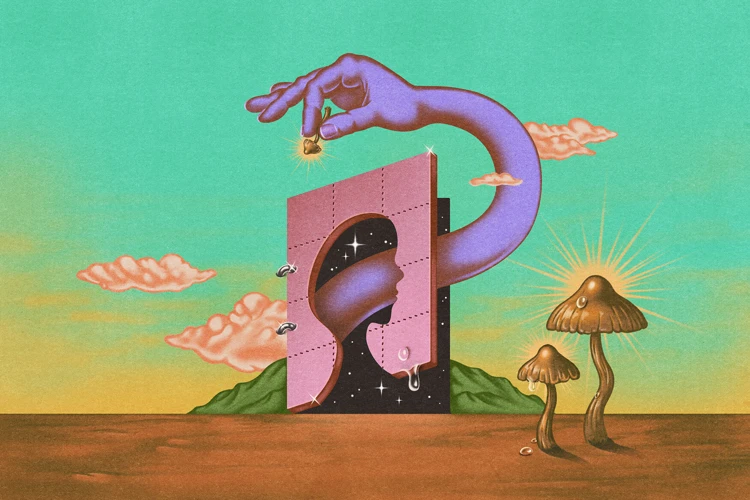
It’s no secret that mental health is a complex and nuanced issue, and the traditional treatments for depression, anxiety, and PTSD often have limited effectiveness or serious side effects. As more people explore alternative approaches to treating mental health, one practice that has gained increasing attention is microdosing with plant medicines. By utilizing small doses of various substances, microdosing is thought to offer a more natural and gentle way to alleviate symptoms and promote overall well-being. This section will delve into the relationship between microdosing and mental health, discussing the potential benefits and risks of this approach.
Microdosing and Depression
Depression is a complex and challenging mental health disorder that affects millions of people worldwide. While traditional treatments, such as antidepressants and therapy, can be effective, they may not work for everyone. Microdosing with plant medicines has shown promising results in relieving the symptoms of depression.
Research studies have found that microdosing with psychedelic substances, such as psilocybin and LSD, can enhance mood, decrease stress and anxiety, and promote feelings of well-being. Additionally, studies have found that microdosing with non-psychedelic plant medicines, such as cannabis and kratom, can also alleviate some of the symptoms of depression.
In a study published in the Journal of Psychoactive Drugs, participants reported that microdosing with psilocybin helped alleviate symptoms of depression, anxiety, and mood disorder. The participants experiences greater emotional stability, reduced negative thought patterns, and increased feelings of creativity and connectedness. Another study published in the Journal of Affective Disorders found that microdosing with LSD reduced symptoms of depression and anxiety in participants who had previously tried traditional treatments with no success.
While the mechanisms behind the effectiveness of microdosing with plant medicines are not fully understood, some researchers believe that it may be due to the substances’ ability to enhance neuroplasticity, or the brain’s ability to reorganize and form new neural connections. This, in turn, can help individuals with depression change negative thought patterns and behaviors.
It is important to note that microdosing with plant medicines should always be done under the guidance of a healthcare professional and should not be used as a replacement for traditional treatments without consultation with a medical professional.
| Benefits | Studies |
|---|---|
| Enhanced mood | Journal of Psychoactive Drugs |
| Reduced stress and anxiety | Journal of Psychoactive Drugs |
| Promotes feelings of well-being | Journal of Psychoactive Drugs |
| Reduced symptoms of depression and anxiety | Journal of Affective Disorders |
| Increased creativity and connectedness | Journal of Psychoactive Drugs |
Microdosing and Anxiety
Microdosing has emerged as a potential therapy for anxiety. There is evidence that microdosing can alleviate symptoms associated with anxiety disorders such as generalized anxiety disorder, panic disorder, and social anxiety disorder. According to a study on mice, low doses of psilocybin were found to stimulate the growth of new neurons in the hippocampus, leading to a reduction in anxiety and depressive behaviors.
How microdosing helps with anxiety?
– Reduces anxiety symptoms: Microdosing psilocybin has been shown to reduce symptoms of anxiety like ruminative thoughts and negative emotions, with the effects lasting up to two weeks after cessation of the treatment.
– Helps with social anxiety: Microdosing also shows promise in helping people with social anxiety. A study published in Psychology Today found that microdosing psilocybin led to an overall reduction in anxiety and an increase in social behavior.
– Increase emotional well-being: Microdosing can increase empathy and emotional well-being by increasing serotonin levels in the brain, leading to a positive mood.
– Relieves obsessive-compulsive behaviors: Microdosing may also help with obsessive-compulsive behaviors that come with anxiety disorders. According to a study published in the Journal of Psychopharmacology, low doses of LSD have been shown to reduce the compulsive checking behavior in people with OCD.
Important considerations:
– It is crucial to choose the right substance for anxiety. Psilocybin and LSD are known to have significant effects on mood and emotions, but other plant medicines like cannabis may not be as effective in treating anxiety.
– Microdosing should not replace conventional psychiatric treatment for anxiety disorders. Instead, it should be used as an adjunct therapy, under the supervision of a professional.
– Dosage is essential in microdosing. Starting low and gradually increasing the dose is vital to ensure safety, mitigate potential risks, and experience the maximum benefits.
Conclusion:
Microdosing may be an effective tool in treating anxiety disorders. For those experiencing anxiety, it’s important to consult a medical professional before starting any treatment, including microdosing. However, under the right circumstances and with the right approach, microdosing with plant medicines can be a powerful tool in promoting overall well-being and mental health.
Microdosing and PTSD
Individuals who suffer from post-traumatic stress disorder (PTSD) often experience symptoms such as anxiety, depression, and flashbacks, which can negatively impact their quality of life. Microdosing with plant medicines has shown potential benefits for managing these symptoms and improving overall mental health. Here are some of the ways microdosing may help with PTSD:
- Reduced Anxiety: Microdosing with psychedelics such as psilocybin has been shown to reduce anxiety levels in individuals with PTSD. A study published in the Journal of Psychopharmacology found that participants who received a low dose of psilocybin experienced a significant reduction in anxiety and depression symptoms when compared to a placebo group.
- Improved Mood: Microdosing with plant medicines such as cannabis or ayahuasca may improve mood and reduce symptoms of depression. Cannabis contains compounds called cannabinoids, which have been shown to have antidepressant effects. Ayahuasca contains DMT, a powerful psychedelic that has been used for spiritual and therapeutic purposes in traditional South American medicine.
- Enhanced Cognitive Function: PTSD can negatively affect cognitive function, including memory and concentration. Microdosing with substances like LSD has been shown to enhance cognitive abilities and may improve symptoms of cognitive impairment in individuals with PTSD.
It is worth noting that microdosing is not a cure for PTSD, and individuals should still seek professional help for their condition. However, microdosing may provide some relief from symptoms and improve overall mental well-being. It is important to consult with a medical professional before beginning any microdosing regimen, as certain substances may interact with medications or exacerbate symptoms.
Microdosing Guidelines
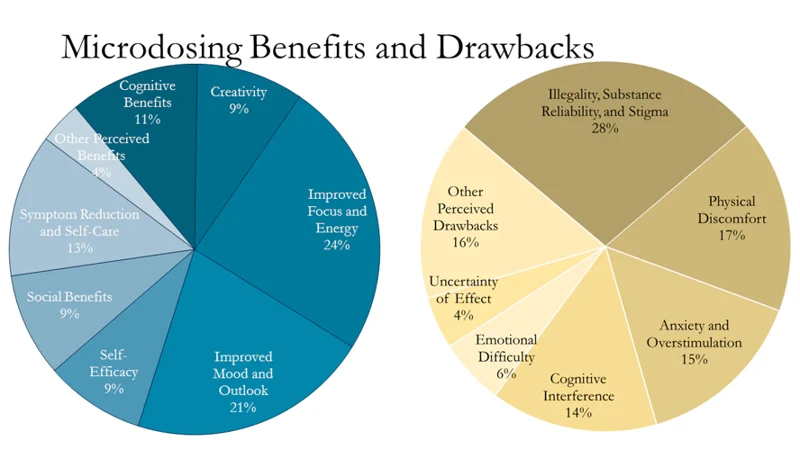
Navigating the world of microdosing can be a perplexing and overwhelming experience, especially if you are new to the practice. There are numerous substances to choose from, and dosing guidelines can be unclear. However, with a little guidance and precaution, microdosing can be a safe and effective way to enhance mental health and well-being. In this section, we will explore some important considerations for successful microdosing and offer practical guidelines for choosing the right substance and establishing an appropriate dosing regimen.
Choosing the Right Substance
Choosing the right substance for microdosing is a crucial step towards desired effects and avoiding possible risks. Here are some popular plant medicines used for microdosing along with their properties and effects:
| Substance | Properties | Effects |
|---|---|---|
| Psilocybin mushrooms | A psychedelic substance found in certain species of mushrooms | Can induce altered states of consciousness, increased creativity, mood enhancement, and decreased anxiety and depression. Note that effects depend on dosage and individual sensitivity. |
| DMT | A powerful psychedelic substance found in various plants | Can induce intense but short-lived altered states of consciousness, spiritual experiences, and emotional breakthroughs. Note that it should be used with caution and under proper guidance due to its potency. |
| LSD | A synthetic psychedelic substance | Can induce intense altered states of consciousness, enhanced sensory perceptions, and mood alteration. Note that it should be used with caution and under proper guidance due to its potency and long-lasting effects. |
| MDMA | A synthetic substance with empathogenic and entactogenic properties | Can induce increased sociability, emotional openness, empathy, and reduced anxiety and depression. Note that it should only be used in therapeutic settings and under professional guidance due to possible risks and side effects. |
| THC and CBD | Cannabinoids found in cannabis plants | Can induce relaxation, pain and anxiety relief, increased creativity, and altered states of consciousness. Note that THC can produce psychoactive effects and is illegal in some jurisdictions, while CBD is non-psychoactive and legal in many places. |
It’s important to research and understand the properties and effects of each substance before deciding to microdose with it. Additionally, choosing high-quality and safe sources for plant medicines is crucial to avoid potential risks and side effects. It’s recommended to consult with a healthcare professional or experienced practitioner before embarking on a microdosing regimen.
Microdosing Regimen
Microdosing Regimen
The microdosing regimen involves taking a small amount of a plant medicine over a specific period of time. The dosage and frequency of consumption can vary depending on the specific substance being used and the individual’s personal needs.
Here is a table outlining general microdosing guidelines for some commonly used plant medicines:
| Substance | Dosage | Frequency | Duration |
|---|---|---|---|
| Psilocybin mushrooms | 0.1 – 0.5 grams | Every 3-4 days | 1-3 months |
| LSD | 5 – 20 micrograms | Every 3-4 days | 1-3 months |
| San Pedro cactus | 5 – 20 milligrams | Every 3-4 days | 1-3 months |
| DMT | 2.5 – 10 milligrams | Every other day | 2-4 weeks |
| Kratom | 0.5 – 2 grams | Every 2-3 days | 1-2 months |
Note: These guidelines are intended as a general starting point and should be adjusted based on the individual’s response and tolerance. It is important to work with a healthcare provider or experienced practitioner when starting a microdosing regimen.
It is recommended to keep a journal to track any changes or effects felt while microdosing. This can help with adjusting dosage and frequency as needed.
Additionally, it’s important to have breaks in between microdosing periods to avoid building tolerance and to allow the body time to rest. A common approach is to follow a “2 days on, 1 day off” schedule.
Remember to always use proper safety precautions when handling and consuming plant medicines.
Important Considerations
When considering microdosing with plant medicines for mental health, there are certain important factors that should be taken into account:
- Legality: It is important to research the legal status of the plant medicine in your country or state. Some substances may be illegal or only legal under certain circumstances.
- Source: It is crucial to ensure that the plant medicine is obtained from a reputable source. The risk of consuming contaminated or impure substances can have serious health consequences.
- Dose: The dose used for microdosing can vary greatly depending on the substance and individual tolerance. It is important to start with a low dose and gradually increase as needed.
- Timing: It is recommended to microdose in the morning to avoid interference with sleep patterns. It is also important to schedule microdosing days around other commitments and responsibilities.
- Intention: It is important to have a clear intention or goal when microdosing. This can help guide the experience and increase the likelihood of positive outcomes.
- Support: Microdosing can be an intense and introspective experience. It is important to have a supportive environment and people to turn to in case of any difficulties.
- Integration: After microdosing sessions, it is important to take time to reflect and integrate the experience. This can involve journaling, meditating, or talking with a therapist or trusted friend.
- Medical Conditions: Individuals with pre-existing medical conditions or taking medication should consult with a healthcare professional before engaging in microdosing with plant medicines.
Considering these important factors can help individuals make informed and responsible decisions when it comes to microdosing with plant medicines for mental health. It is important to approach microdosing with caution, attentiveness, and respect to maximize its therapeutic potential.
Potential Risks and Side Effects
As with any type of drug or substance use, there are potential risks and side effects to consider when it comes to microdosing with plant medicines for mental health. While some individuals have reported positive outcomes from their microdosing experiences, it is important to also acknowledge and seriously evaluate any potential adverse effects. In the following section, we will discuss some of the possible physiological and psychological risks and side effects associated with microdosing. It is important to note that while some of these effects may occur, they do not necessarily happen to everyone and the severity can vary depending on the individual and the substance being used. It is crucial to approach microdosing with caution and to conduct thorough research before embarking on any microdosing regimen.
Psychological Risks and Side Effects
When it comes to microdosing with plant medicines, it’s important to keep in mind that there are potential risks and side effects. In particular, there are psychological risks and side effects that users should be aware of before embarking on a microdosing regimen.
Psychological Risks and Side Effects
One of the primary psychological risks associated with microdosing is the possibility of experiencing a “bad trip.” This can occur when an individual takes a larger dose than they intended, or when they take a substance that is more potent than they expected. A bad trip can involve intense feelings of anxiety, paranoia, and panic, along with hallucinations and other disturbing symptoms.
Other potential psychological side effects of microdosing can include:
| Side Effect | Description |
|---|---|
| Increased anxiety | Microdosing has been known to increase anxiety in some individuals, particularly if they are already predisposed to anxiety or have a history of anxiety disorders. |
| Depression | In some cases, microdosing can exacerbate symptoms of depression, particularly if the individual is taking a substance that has a down-regulating effect on serotonin receptors. |
| Psychotic symptoms | There have been reports of individuals experiencing psychotic symptoms, such as delusions and hallucinations, after microdosing with certain substances. |
| Flashbacks | Some individuals who have used psychedelic substances for microdosing have reported experiencing flashbacks or other residual effects in the days or weeks following their last dose. |
It’s worth noting that microdosing with plant medicines is a relatively new phenomenon, and there is still much that researchers and medical professionals do not know about the long-term psychological effects of these substances. As such, individuals who are considering microdosing should proceed with caution and be aware of the potential risks before they start.
Physiological Risks and Side Effects
When it comes to the physiological risks and side effects of microdosing with plant medicines, it’s important to note that these substances can have impacts on the body as well as the mind. While many people who microdose experience few to no negative effects, it’s still important to be aware of the potential risks.
| Physiological Risks | Side Effects |
|---|---|
| Nausea | Some people may experience nausea, especially when consuming plant medicines in higher doses. |
| Increased Heart Rate | Some plant medicines can cause an increase in heart rate, which may be concerning for people with pre-existing heart conditions. |
| Headaches | Some individuals may experience headaches of varying intensity, which may persist for several hours after ingestion. |
| Sleep Disturbances | Some people may experience disturbances to their sleep patterns, including difficulty falling asleep or staying asleep. |
| Appetite Suppression | Microdosing may lead to appetite suppression or loss of appetite, which could be a concern for individuals who are already underweight or have a history of disordered eating. |
| Dehydration | Some psychedelic plant medicines can cause dehydration, especially if consumed in conjunction with other substances like caffeine or alcohol. |
It’s worth noting that not everyone will experience these side effects, and in some cases, they may not be severe enough to outweigh the benefits of microdosing. However, if you’re considering microdosing, it’s important to discuss any potential risks with a healthcare provider first, especially if you have any pre-existing medical conditions or are taking other medications. Additionally, it’s important to carefully research and select the appropriate plant medicine for your individual needs, and to always follow a safe and responsible microdosing regimen.
Conclusion
In conclusion, microdosing with plant medicines can potentially offer a range of benefits for mental health conditions. However, it is important to approach microdosing with caution and proper guidance to avoid any potential risks and side effects.
Microdosing Guidelines should always be followed, including choosing the right substance and adhering to a proper microdosing regimen. It is also important to consider any possible interactions with other medications or medical conditions.
While there is some research indicating the benefits of microdosing for depression, anxiety, and PTSD, more studies are needed to fully understand its efficacy and safety.
Although microdosing may offer potential benefits, there are also potential risks and side effects. These can include psychological and physiological symptoms, such as anxiety, paranoia, and elevated heart rate. Therefore, it is essential to consult with a qualified healthcare professional before considering microdosing.
Overall, microdosing with plant medicines may hold promise as an alternative approach to mental health treatment. However, caution and proper guidance must be exercised to ensure its safe and effective use. Potential benefits must be weighed against any potential risks and side effects before making a decision to try microdosing.
Frequently Asked Questions
What is the difference between microdosing and regular dosing?
Microdosing refers to taking a fraction of a standard dose of a substance, while regular dosing involves taking a full standard dose of a substance.
Is microdosing legal?
The legality of microdosing depends on the substance being used and the laws of the country/state in which it is being consumed. Some substances are illegal to possess or consume, while others are legal to possess but illegal to consume.
What substances can be used for microdosing?
Substances commonly used for microdosing include psychedelics like LSD and psilocybin, as well as non-psychedelics like cannabis and kratom.
How often should one microdose?
The frequency of microdosing depends on the individual’s needs and the substance being used. Some people microdose daily, while others may only do it once every few days or even once a week.
What is the recommended dosage for microdosing?
The recommended dosage for microdosing is typically a fraction of the standard dose, usually between 1/10th to 1/20th of the standard dose.
Can microdosing be used as a substitute for traditional therapy?
Microdosing should not be used as a substitute for traditional therapy. It should only be used in conjunction with therapy or as a supplement to therapy.
How long do the effects of microdosing last?
The effects of microdosing can vary depending on the individual and substance being used, but typically last between 4-6 hours.
Is microdosing addictive?
There is currently no evidence to suggest that microdosing is addictive.
Can microdosing have negative effects on mental health?
While microdosing has been shown to have potential benefits for mental health, there are also potential risks and negative side effects, especially if not used properly.
Are there any contraindications for microdosing?
Individuals with a history of mental illness or psychiatric disorders, as well as those taking certain medications, should consult with a doctor or mental health professional before considering microdosing.

